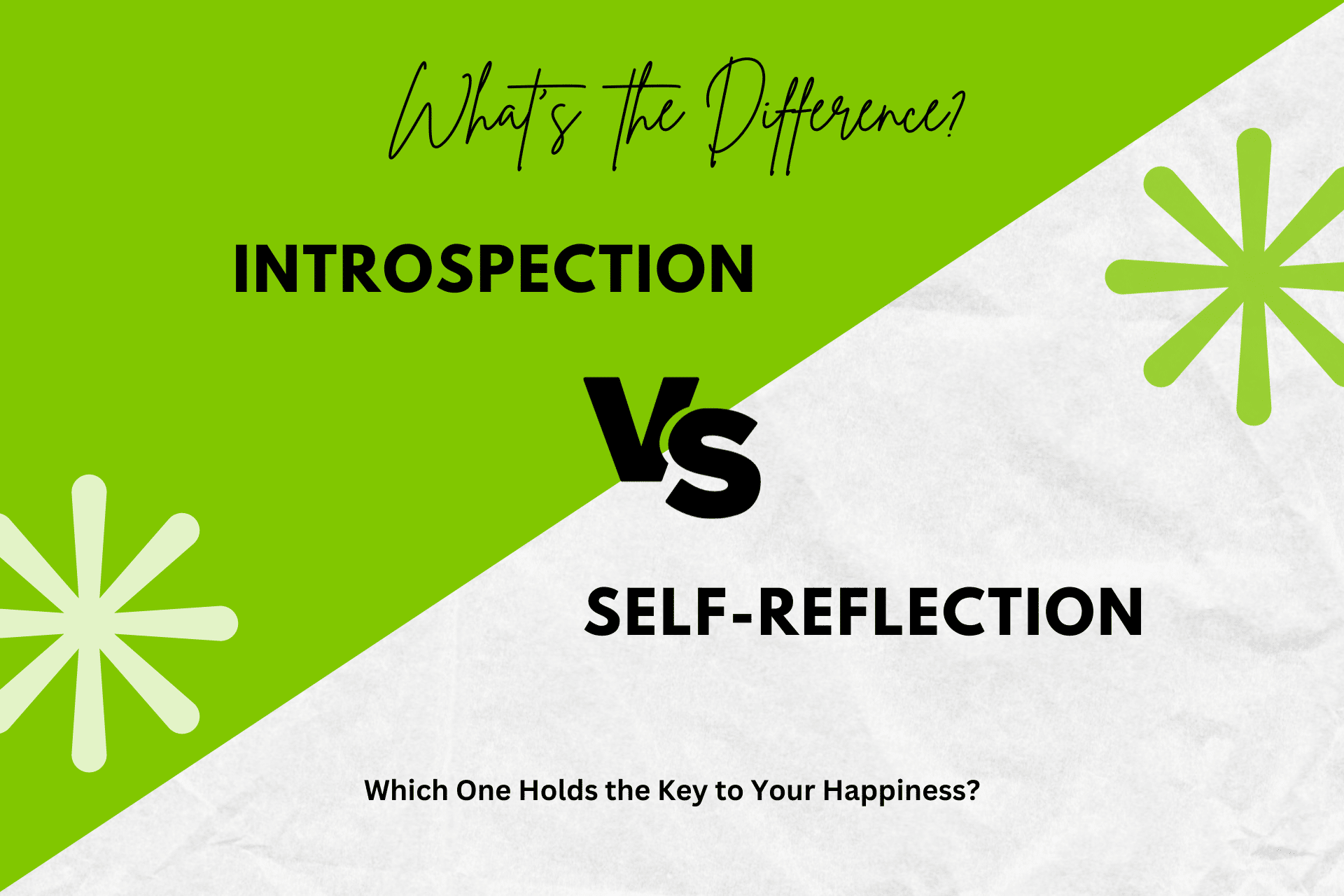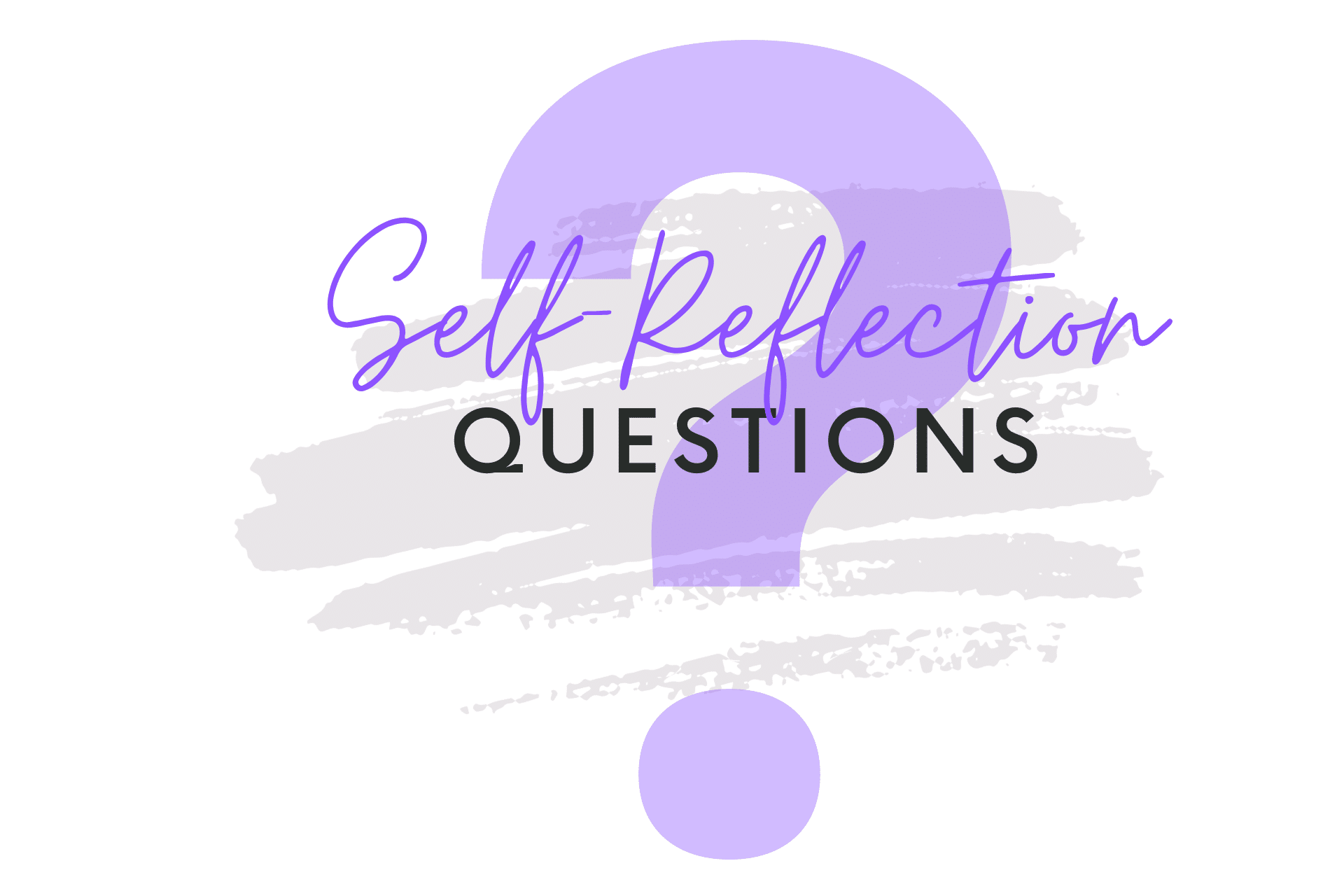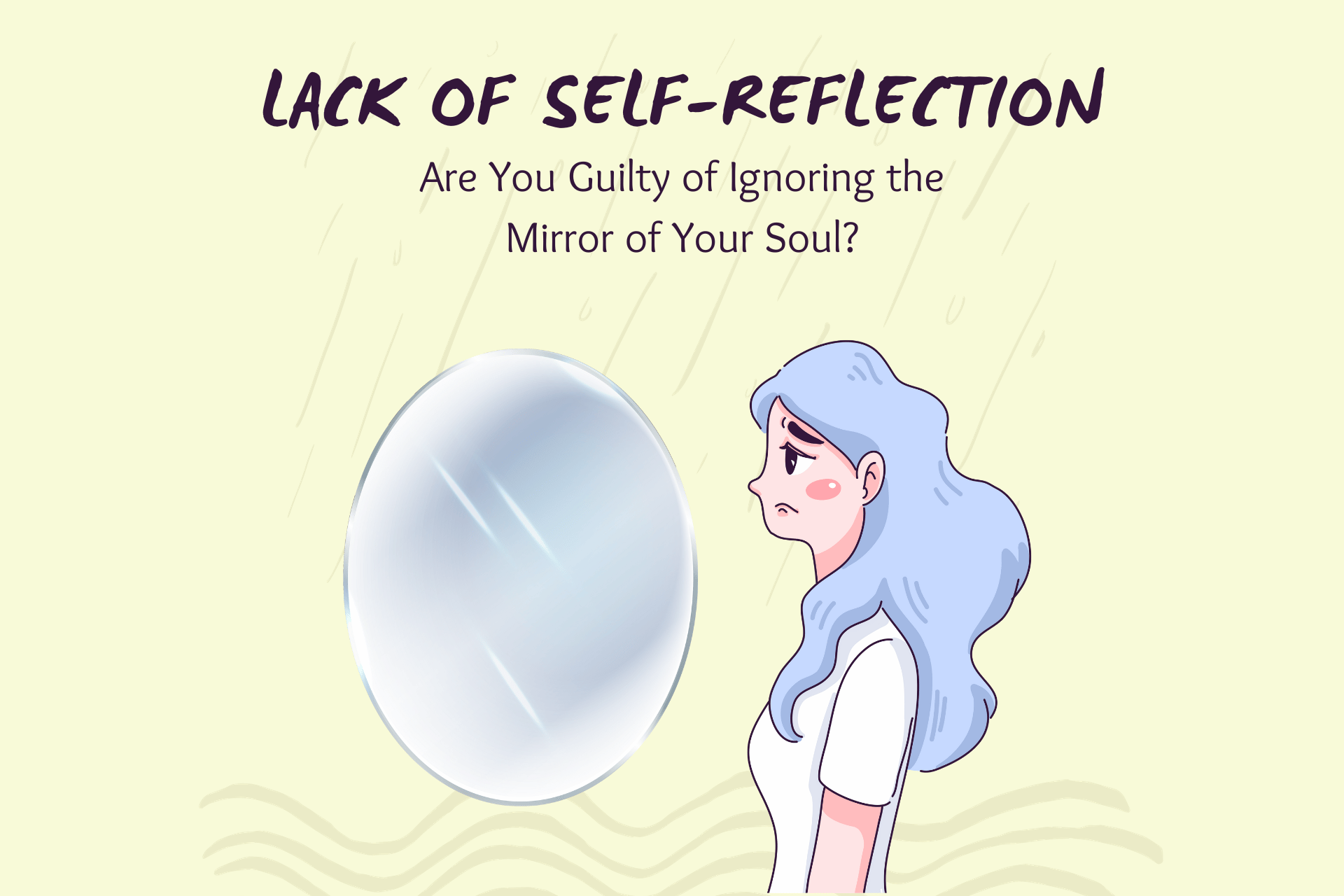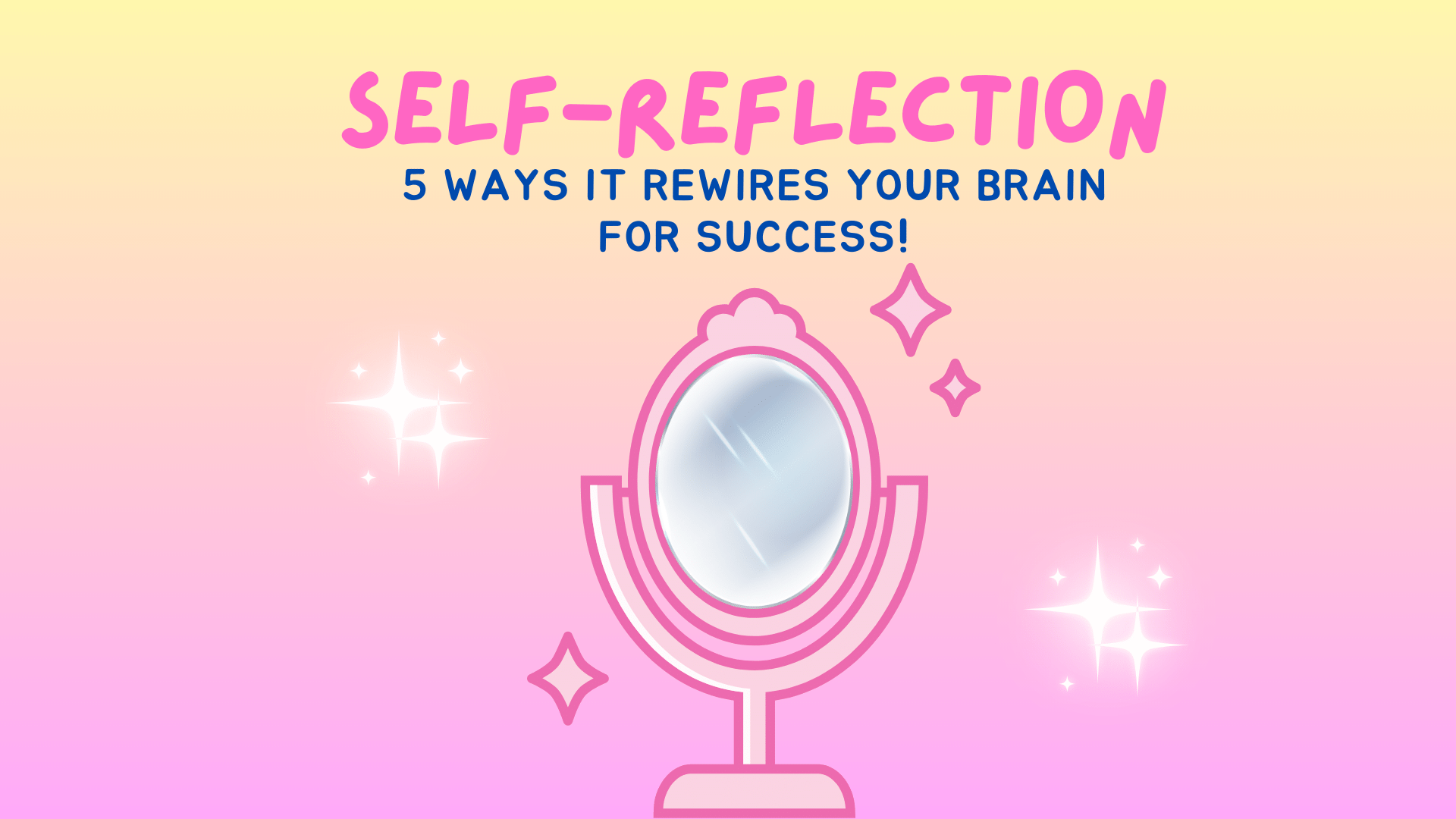The Game-Changing Habit That Transforms Ordinary Women into Powerhouses!
You’re juggling a million tasks, deadlines loom, and let’s not even talk about the ever-growing laundry pile. We get it. Life’s demands often leave little room for you—just you. But pause.
What if investing a sliver of time in self-reflection could make everything else a tad more manageable, even fulfilling? We’re not talking about gazing into a mirror but peering into your thoughts, experiences, and emotions. As women, we often prioritize others so much that we forget ourselves.
Trust us, we’ve been there, and the research backs us up. Self-reflection is not some “woo-woo” jargon; it’s an essential practice grounded in psychology that can help you understand yourself better, thereby improving your relationships, career, and overall well-being.
So take a deep breath. You’re in the right place to discover how to make this transformative practice a part of your daily routine.
Stick around; you won’t want to miss what’s coming.
Let’s get started!
Here's What You Will Find

Key Takeaways
Self-Reflection
Self-reflection Isn’t Solitary: Your journey inward can inspire those around you, creating a ripple effect of self-awareness and positive change in your community.
Start Small, Aim Big: You don’t need to overhaul your life overnight. A few minutes of daily reflection can accumulate into significant insights and actionable steps for personal growth.
Debunk the Myths: self-reflection doesn’t require a monk-like discipline or esoteric knowledge. It’s a simple yet powerful tool that anyone can use to understand themselves better.
It’s Science-Backed: Beyond just feel-good vibes, research affirms the mental and emotional benefits of self-reflection, making it a healthy habit that’s well worth the time investment.

Today’s woman is nothing short of a superhero in disguise. Whether it’s closing million-dollar deals, running a household, or championing social causes, we’re often at the forefront. But even superheroes need to hang up their capes sometimes and reflect.
So why is it crucial for us?
Self-reflection counters self-criticism and helps recognize your worth and achievements.
Improves mental health by serving as a mental ‘clear cache,’ reducing stress and anxiety.
Provides a grounding framework to assess and adapt life choices, from work-life balance to relationships.
Sets an empowering example for younger women, showing that it leads to personal growth.
So, if you’re still contemplating whether self-reflection should be on your ‘To-Do List,’ we say move it up to the ‘Must-Do’ section. Trust us; you’ll thank yourself later.
What Is Self-Reflection?
Self-reflection. It sounds like something that might come with a mountain of philosophy books and a side of existential crisis, right? Nope, think again! While it may sound lofty, it is genuinely a straightforward yet profound practice that can be life-altering when done right.
Self-reflection is the process of consciously examining and analyzing one’s thoughts, feelings, and actions. This introspective practice aims to gain a deeper understanding of oneself, often with the goal of personal growth or problem-solving. It involves taking time away from daily activities to consider your goals, decisions, values, and experiences to improve self-awareness and make more informed choices in the future. Self-reflection can occur spontaneously, but it is often more effective when done intentionally, either through journaling meditation, or thoughtful analysis.
Is It Just Thinking About Thinking?
Self-reflection isn’t just a loop of overanalyzing your thoughts. Imagine you’re the director of your movie, taking a step back to watch the footage of your life. You’re not just replaying events; you’re pausing to ask, “Why did I say that?” or “What did that experience teach me?”
It’s active, purposeful contemplation to gain insights into your behavior, beliefs, and triggers. It’s your personal “life audit,” where you assess your emotional inventory and strategize your future moves. No abacus is needed, promise!

Transformative Benefits of Self-Reflection
Emotional Intelligence
Become the Master of Your Feelings
Self-reflection can significantly improve your emotional intelligence by helping you understand your emotional triggers and responses. This mastery can enable you to manage your emotions effectively rather than letting them manage you.
Decision-Making
Choose Wisely, Choose Well
Regular self-reflection can fine-tune your decision-making skills. By consciously analyzing past choices and their outcomes, you can gain valuable insights that inform future decisions, making them more aligned with your life goals.
Work-Life Balance
Striking the Golden Ratio
Self-reflection helps you reassess your priorities, enabling you to achieve a healthier work-life balance. By considering what truly matters, you can allocate time and resources more efficiently, reducing burnout and enhancing happiness.
Strengthen Relationships
Know Yourself, Know Others
Understanding your motivations, desires, and pet peeves through self-reflection can lead to more empathetic interactions with others. When you understand yourself better, you can also understand others more deeply, strengthening your relationships in the process.
Personal Growth
Evolve and Transform
The act of self-reflection fosters personal growth by highlighting areas for improvement and encouraging action. With regular introspection, you can chart a path toward becoming the best version of yourself.
Note that there is a difference between introspection and self-reflection. Introspection focuses on real-time, inward examination of your thoughts and emotions, while self-reflection is a retrospective analysis of your past actions, decisions, and experiences.
Mental Resilience
Build Your Mental Fortress
Self-reflection practices like journaling or mindfulness meditation can enhance your mental resilience. These acts of inner exploration can help you build coping skills and develop a sense of inner stability, better preparing you to face life’s challenges.
Whether you’re a high-powered executive, a stay-at-home parent, or a young adult navigating the complexities of life, the benefits of it extend across all walks of life. Consider making it a routine practice; your future self will thank you.
Difference Between Self-Reflection and Overthinking
Now, this is where it gets juicy. You might say, “Hold on, isn’t that what we do when we’re lying awake at 3 a.m., ruminating over every tiny mistake?” Not quite. There’s a fine but critical line between self-reflection and overthinking.
The key difference between self-reflection and overthinking lies in the outcome and intent of the thought process.

Self-reflection is a constructive, intentional act aimed at understanding oneself better, solving problems, or achieving personal growth. It often leads to actionable insights and facilitates positive changes.
On the other hand, overthinking is an uncontrolled, often negative spiral of thoughts that does not result in any productive outcome and can exacerbate stress and anxiety. While self-reflection helps you move forward, overthinking keeps you stuck in a mental loop.
Overthinking is like a hamster wheel. You go round and round but never get anywhere. It’s passive, filled with worry, and often spirals into negative self-talk. You replay scenarios, but they usually lead to more confusion or distress.
Self-reflection, on the other hand, is constructive and empowering. It encourages you to face challenges, adapt, and grow. It’s the difference between asking yourself, “Why does this always happen to me?” and “What can I learn from this to make better choices in the future?”
So, while overthinking keeps you stuck, self-reflection is your mental GPS, recalibrating your route when you take a wrong turn. It’s time to hop off the hamster wheel and step into the director’s chair. Your life’s blockbuster awaits!
Why Is Self-Reflection Important?
Life often feels like a sprint, doesn’t it? You’re chasing deadlines, ambitions, or even your kids around the house. But every sprinter knows the value of taking a breather, reviewing their performance, and strategizing for the next lap. That’s precisely where self-reflection comes in. But you might ask, “Why does it matter so much?”
Importance of Self-Reflection
Self-reflection is important for several key reasons.
Firstly, it enhances self-awareness by encouraging individuals to examine their thoughts, feelings, and actions in a focused manner. This heightened understanding can lead to better decision-making and behavioral changes that align with one’s values and goals.
Secondly, self-reflection is instrumental for personal growth and development. By evaluating past experiences and considering future aspirations, one can identify areas for improvement and set meaningful, achievable objectives.
Thirdly, self-reflection has significant benefits for mental health. The process helps individuals process emotions and experiences, providing an opportunity to gain perspective and reduce stress and anxiety. It is a form of emotional regulation, making it easier to manage challenges and maintain mental wellness.
Finally, self-reflection is valuable for fostering improved relationships with others. Understanding oneself more fully can help an individual communicate more effectively and empathize with others, which are key components of healthy relationships.
Overall, self-reflection is a critical tool for various aspects of life, from personal well-being to relational success.
Personal Growth
The Woman You Become
As women, we’re forever evolving—through stages of education, careers, motherhood, or whatever life path you’ve chosen. And like a well-aged bottle of wine or your favorite vintage jeans, you want to get better with time. Self-reflection is your personal growth catalyst.
By consistently looking inward, you identify your strengths and weaknesses. You become aware of habits that propel you forward or hold you back. It’s like having an internal feedback system that gives you real-time updates, helping you become the best version of yourself.
After all, wouldn’t you want to meet the future and think, “Wow, she’s awesome!”? Spoiler alert: You’re already awesome; self-reflection helps you realize it!
Mental Health
How Self-Reflection Helps You Stay Centered
Let’s face it: the modern world is a circus, and balancing acts are not just for the tightrope walkers. The constant juggle can take a toll on your mental well-being. Enter self-reflection, your backstage oasis in the middle of life’s chaos. Multiple studies have shown that taking time to reflect can significantly reduce symptoms of stress, anxiety, and depression. It’s like a mental workout minus the sweat!
How does this work? Well, reflecting on your thoughts and actions can help you identify emotional triggers and effective coping mechanisms. This awareness is not merely enlightening; it’s liberating. It helps you take control, so instead of spiraling out of control when life throws lemons at you, you’re well-equipped to make some fabulous lemonade—or maybe even a zesty lemon tart if you’re feeling fancy.
So, if you’ve been sidestepping self-reflection, thinking it’s another item on an already crowded to-do list, it’s time for a rethink. It’s not another task; it’s a lifeline. Because a balanced, self-aware person is not just good for you; it’s a win for everyone who shares your world.
A Step-By-Step Guide: How to Self-Reflect Effectively
Embarking on the journey of self-reflection might seem daunting at first, like trying to solve a Rubik’s Cube with no instruction manual. Don’t worry; we’ve got your back.
Here’s a step-by-step guide to make the process as smooth as your favorite latte.

Step 1: Create a Comfortable Space
Find a location that feels inviting and free from distractions. Could be your cozy armchair with soft pillows or perhaps a quiet corner in your local park. The goal is to be somewhere you can focus without interruptions—no Instagram notifications, please!
Step 2: Set Your Intentions
Before you get lost in the sauce of your thoughts, set a clear intention for what you’d like to achieve. Do you feel you lack self-reflection? Are you trying to solve a specific problem? Understand a certain emotion? The clearer your aim, the more fruitful your session will be.
Step 3: Ground Yourself
Take a few deep breaths or do a quick mindfulness exercise to ground yourself in the present moment. This mental prep work is like warming up before a workout; it helps you get the most out of your time.
Step 4: Ask Open-Ended Questions
Start your reflection by asking yourself open-ended questions like, “What was the highlight of my day?” or “Why did that comment bother me so much?” This isn’t a job interview; there are no wrong answers. You’re merely inviting your thoughts to the party.
Step 5: Be Honest, But Gentle
Answer your questions honestly, without sugar-coating or harsh judgments. This step is about observing, not criticizing. Remember, self-reflection is your judgment-free zone.
Step 6: Record Your Insights
Whether it’s jotting down in a journal or typing into an app, make a record of your insights. You might be surprised at how handy these notes become over time, like a trail of breadcrumbs leading you to a deeper understanding of yourself.
Step 7: Take Actionable Steps
Based on your reflections, identify one or two actionable steps you can take to improve or grow. Small, incremental changes are often more sustainable and effective than trying to overhaul your life overnight.
Step 8: Close With Gratitude
Finish your session by acknowledging something you’re grateful for. Ending positively can infuse a sense of peace and purpose into your practice, making you more likely to return to it.
And there you go—your personalized roadmap to self-reflection! These steps aren’t set in stone; feel free to tweak them as you see fit. The goal is to make self-reflection a tailor-made experience that serves you best. So, what are you waiting for? Your inner world awaits your exploration!
5 Ways Self-Reflection Rewires Your Brain for Success and Happiness
By now, you’re probably sold on the idea that self-reflection benefits personal growth and emotional well-being. But did you know that it can literally change the way your brain functions? Hold onto your neurons because science has some thrilling insights!

1. Boosts Emotional Intelligence
When you engage in self-reflection, you’re essentially training your brain to understand emotions better—both yours and those of others. This heightened emotional intelligence can make you more empathetic and improve your relationships, both personally and professionally.
2. Strengthens Problem-Solving Skills
self-reflection often involves thinking about challenges and potential solutions. This type of mental workout enhances your problem-solving skills, activating the prefrontal cortex—the “CEO” of your brain responsible for complex planning.
3. Enhances Self-Control
Consistent self-reflection has been shown to strengthen the neural pathways responsible for self-control. When you’re accustomed to pausing and reflecting before acting, you’re less likely to make impulsive decisions, helping you stick to your long-term goals.
4. Increases Mindfulness and Reduces Stress
By promoting a state of mindfulness, self-reflection can help lower stress levels. This occurs through regulating cortisol, the stress hormone, leading to a greater sense of peace and well-being.
5. Encourages Neural Connectivity
According to neuroscience, the act of self-reflection stimulates stronger neural connections. This boosts cognitive functions such as memory, learning, and decision-making, making you more adept at navigating life’s ups and downs.
There you have it—five astonishing ways self-reflection can literally change your brain for the better. It’s not just woo-woo; it’s scientifically verified awesomeness! And remember, the brain is like any other muscle—the more you exercise it, the stronger it becomes.
So why not make self-reflection your daily mental gym session?
Techniques for Effective Self-Reflection
So, you’re sold on the idea of self-reflection, and you’re ready to give it a go. Excellent choice, my friend! But you may be wondering how actually to make this a practical part of your life. Fear not; we’ve got you covered.
How Long Does It Really Take?
Ah, the age-old question: “Do I need to meditate on a mountaintop for a week to reflect genuinely?” Short answer: Nope! Self-reflection is not about the quantity of time but the quality. Even just 10 to 15 minutes a day can make a significant difference. Think of it as the mental equivalent of a “power nap.” If you can spare more time, that’s fabulous, but don’t let the fear of a time commitment deter you from starting.
Do You Need Solitude, or Can You Reflect in a Coffee Shop?
Here’s the deal: the “perfect” setting for self-reflection varies from person to person. Some folks need absolute silence, while others find the hum of a coffee shop soothing. Test different environments to see what allows you to focus best.
Remember, self-reflection is a personalized journey; your best setting is wherever you feel most comfortable thinking deeply. Heck, some people have breakthrough moments while vacuuming or waiting for their bread to toast!
Practical Tips to Make Self-reflection a Habit
We all know that habits, both good and bad, make up the fabric of our daily lives. The trick is making self-reflection a good habit you can’t ignore.
Same Time, Same Place: Routine Matters
Just as you wouldn’t skip brushing your teeth (we hope), try to make self-reflection a non-negotiable part of your routine. Choose a time and a place that you can consistently dedicate to reflection. Is it first thing in the morning while sipping your coffee? Or perhaps the last thing at night, trading a few scrolls on social media for some quality “me-time.” The key is consistency.
Quick Reflections for Women on the Move
Life’s hectic; we get it. Board meetings, soccer practices, and, oh, didn’t you promise to FaceTime, your college roommate tonight? Even if your calendar looks like a Tetris game, there are ways to sneak in quick but effective moments of reflection.
Think of it as the mental equivalent of taking the stairs instead of the elevator—every little bit helps. Jot down your thoughts in a notepad or a dedicated app whenever possible. These quick check-ins with yourself can be surprisingly revealing.
Self-Reflection Tools You Can Use
There’s no shortage of self-help books, apps, and courses claiming to be the be-all and end-all of personal growth. But let’s keep it simple, shall we?
Apps or Pen and Paper?
In the age of smartphones, many apps offer structured formats for journaling and reflection. Some even come with reminders and analytics, turning your mental explorations into pretty pie charts. If that’s your jam, go for it!
But don’t underestimate the power of good ol’ pen and paper. Writing physically can be a more visceral experience, helping you connect deeply with your thoughts.
To Share or Not to Share
Privacy vs. Community
Your reflections are your sanctuary, a private dialogue between you and, well, you. But sometimes, sharing can add another layer of insight. Whether it’s a trusted friend, a mentor, or an online community of like-minded individuals, external perspectives can offer you an expanded view of yourself.
But always remember, the choice to share is entirely yours. Some thoughts may be too personal, and that’s perfectly fine.
So there you have it—your starter pack for effective self-reflection. It’s a journey that only you can take but one that can benefit everyone around you. Ready to get started?
Overcoming Self-Reflection Barriers
So, you’re convinced that self-reflection is the secret sauce to a more fulfilling life, but there’s a pesky little thing called resistance standing in your way. It’s like wanting to go for a run but finding every excuse in the book not to lace up those sneakers.
Let’s tackle those barriers head-on.
How to Reflect When Your Mind Says ‘Nope’
You sit down to reflect, and suddenly your brain turns into a rebellious teenager, insisting, “I don’t wanna!” You’re not alone; it’s a common hiccup. The trick is not to force it but to ease into it. Start with light, less intimidating questions or even guided meditations that can steer your mind gently toward reflection.
Another tactic? Bribe yourself—yes, you heard that right. Promise yourself a small reward post-reflection, like a treat or an episode of your favorite show. Sometimes, a little incentive goes a long way in silencing the naysaying voices in your head.
Breaking Through the Common Myths and Misconceptions
Let’s debunk a few myths that often create unnecessary roadblocks:
Myth 1: Self-reflection has to be a solemn, serious affair. Wrong! It can be as quirky, fun, or relaxed as you make it.
Myth 2: You have to have big, life-altering revelations every time. Nope, sometimes the smaller insights are just as valuable.
Myth 3: You need to be a mindfulness guru for it to work. Absolutely not. Self-reflection is for everyone, from rookies to Zen masters.
The Psychology and Science of Self-Reflection
Okay, so you’re not just taking our word for it; you’d like some scientific backup. Fair enough; we love a thorough woman!
What Do the Experts Say?
Many psychologists, like Carl Rogers and Albert Bandura, have highlighted the importance of self-reflection for personal growth and self-regulation.
According to these experts, it’s not just a feel-good exercise; it’s crucial for cognitive and emotional development. Rogers, for instance, emphasized the importance of “self-concept,” a set of beliefs about oneself that evolves through reflection.
The Mental Benefits Backed by Research
Multiple studies confirm that self-reflection contributes to improved mental health. A study published in the Harvard Business Review suggests that reflection boosts performance and productivity.
Furthermore, a paper in the Journal of Psychological Science found that reflecting on personal experiences can lead to increased feelings of social connection and decreased feelings of loneliness. So, not only does it make you wiser, but it can also make you happier and more connected.
So there it is, your comprehensive guide to the world of self-reflection, complete with scientific footnotes for the skeptical among us. Now, armed with knowledge and tips, you’re all set to make self-reflection a regular feature in the story of your life. Why keep it to yourself? Share these insights with other incredible women like you. After all, the journey inward is one worth sharing.
Why Your Self-Reflection Matters Not Just to You
We often underestimate the ripple effect of our well-being on those around us. Your journey of self-reflection doesn’t just uplift you; it creates a positive energy that can inspire the women in your circle to embark on their reflective paths. Imagine a community where each one of us is actively engaged in personal growth and self-awareness.
It sounds like a supportive, enlightened utopia, doesn’t it?
Inspiring a Culture of Self-Reflection in Your Community
Start a conversation with your friends, sisters, or colleagues about the benefits you’ve reaped from self-reflection. You might be the catalyst someone else needs to jump-start their transformative journey.
Amplify the Impact
Spread the Word on self-reflection
If this article resonated with you, chances are, it will hit home for someone else in your life. Don’t hesitate to share it with other fabulous women who might be standing at the threshold of self-discovery. A simple share could potentially change a life—or several.
As always, if you have any questions or need further clarification on self-reflection or any other topic, please get in touch with us. We’re here to support you every step of the way.
Let’s keep the dialogue going and build a community where self-reflection is a shared practice, spreading its enriching benefits far and wide.
More on Self-Reflection

Introspection vs Self-Reflection: Which One Holds the Key to Your Happiness?

25 Must-Ask Self-Reflection Questions for Every Woman to Seize Her Power

Lack of Self-Reflection: The Silent Epidemic Sabotaging Your Success
Related Articles
How to Be a Financially Independent Woman
Financial Resilience: 10 Steps That Will Completely Transform Your Financial Life!
Mastering Organizational Resilience: 7 Insider Strategies for Bulletproofing Your Business!
Entrepreneurship, Career Development
Operational Resilience: The Game-Changer Strategies Every Business Leader Needs to Know!
Career Development, Entrepreneurship
50-30-20 Rule Revealed: Budget Like a Pro and Save More!



